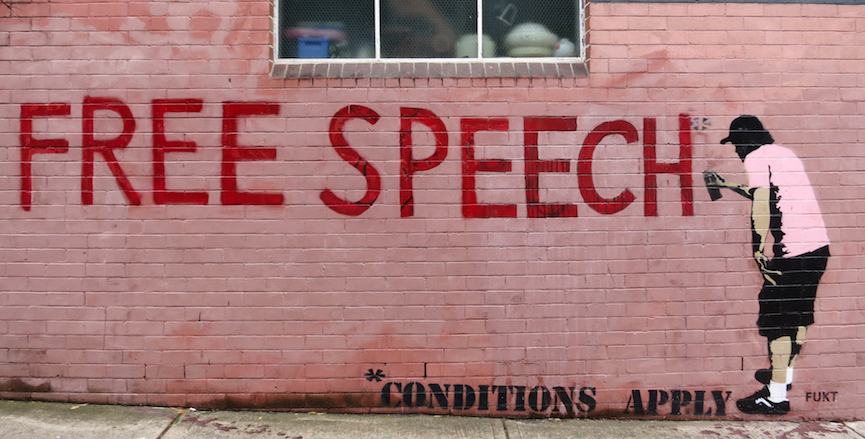It’s hard to keep up with Premier Ford. He keeps piling on definitive moves we never even knew he had an opinion on. He abolished the stand-alone cabinet post for Indigenous Affairs. He cut mental health funding by $330 million every year. He eliminated the basic income pilot project that he had promised to maintain. He cut all funding to a wonderful after-school music program for less privileged kids in Toronto.
No one expected any of these moves, and some explicitly violate Ford’s promises. Yet none of them should surprise. All are entirely consistent with Ford’s view of the world, in which those near the bottom of the ladder have earned that status. So if these measures are singularly mean and punitive, they are hardly unexpected.
Equally unexpected, perhaps, was Ford’s campaign pledge to tie university funding to free speech on university campuses. Last week he delivered on this pledge, warning colleges and universities, as the Globe explained, “they will face funding cuts if they fail to adopt free-speech policies that defend controversial speakers on campus.” This echoed a position taken also by the federal Conservative Party leader during his leadership campaign last year. So much for the cherished principle of university autonomy.
It’s hard to believe that Doug Ford has spent 30 seconds of his life pondering issues of free speech and liberty. I don’t believe that’s what’s going on here at all. It reflects, rather, a conviction among conservatives that “radical left-wing” students are mobilizing to keep conservative speakers off Canada campuses. Those who know Ford’s record are convinced he’s determined to end this phenomenon and open universities to “controversial speakers” such as Holocaust deniers, anti-abortion activists, and far-right radicals.
After all, many of the speakers whose presence on campus has been opposed by the “politically correct” surely deserve total opposition. The Globe itself points to the presence at Wilfrid Laurier University early this year of one Faith Goldy, described as “a white nationalist and supremacist activist who has appeared on neo-Nazi podcasts”. Is this the kind of person whose rights Mr. Ford is championing?
Should we fight for the rights of outright bigots? What about anti-Semites? What about those who champion the KKK? Surely they have crossed the line by inciting hatred against various minority groups. We can’t stop students from being exposed to these racists and homophobes and misogynists. But what gives them the right to appear at our public universities? And what if a professor appropriately introduces the words of such demagogues in the course of their lectures?
There’s an irony here, because almost all conservatives go on to make an exception for a category of those whose civil liberties they would not defend: those who criticize the state of Israel, especially those who promote the Boycott, Divestment and Sanctions (BDS) campaign against Israel advocated for around the world.
In fact, despite winning many powerful supporters, the BDS campaign has garnered a universe of angry, indignant opposition, and has even been made illegal in some jurisdictions. In 2016, for example, hysteria overcame the Ontario legislature when Liberal and Conservative members united to pass a motion that rejects the ‘differential treatment’ of Israel by the BDS movement”. Heaven knows what that meant, but its sentiments were clear enough.
For many, BDS is beyond the pale, tantamount, needless to say, to a form of anti-Semitism. These same free-speechers insist that any criticism of the policies of the government of Israel constitutes a form of anti-Semitism. It’s ludicrous but widely believed.
The proposition is straight-out irrational. There’s no reason in the world why the government of Israel should not be just as subject to criticism as those of the U.S. and Russia and yes, even Canada. But many reject that simple proposition.
What makes this controversy so mysterious is that everything about BDS is legal, legitimate. It is nothing more than a non-violent, peaceful means of protest against a nation’s contentious policies. We can agree or disagree about those policies, so long as we all have the democratic right, the liberty, to express our opinion peacefully. Boycotts and sanctions have long been seen as an honourable, non-violent form of protest. At one point, probably millions of Canadians once refused to buy South African wine or California grapes. Why is Israel off-limits?
The BDS campaign is not going away, and one day it will return again to the Ontario legislature. You can bet your mortgage that great old civil libertarian, Doug Ford, will be passionate and simplistic in repudiating it. There are limits to free speech, after all.
Image: wiredforlego/Flickr
Help make rabble sustainable. Please consider supporting our work with a monthly donation. Support rabble.ca today for as little as $1 per month!





